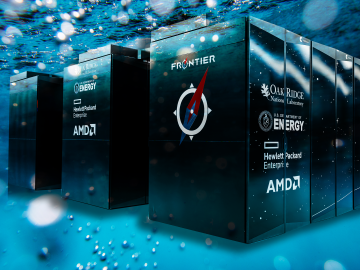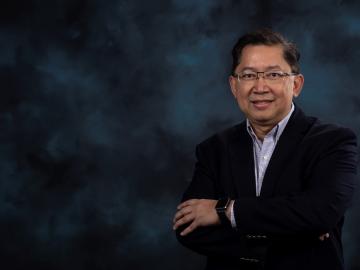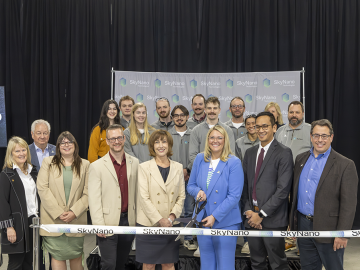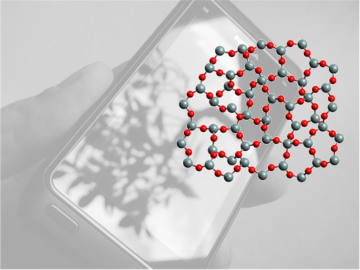Filter News
News Topics
- (-) Nanotechnology (2)
- (-) Physics (2)
- 3-D Printing/Advanced Manufacturing (7)
- Advanced Reactors (3)
- Artificial Intelligence (18)
- Big Data (5)
- Bioenergy (7)
- Biology (9)
- Biomedical (5)
- Biotechnology (4)
- Buildings (10)
- Chemical Sciences (8)
- Clean Water (3)
- Climate Change (14)
- Composites (3)
- Computer Science (15)
- Critical Materials (2)
- Decarbonization (15)
- Emergency (1)
- Energy Storage (7)
- Environment (16)
- Exascale Computing (4)
- Fossil Energy (2)
- Frontier (5)
- Fusion (4)
- Grid (5)
- High-Performance Computing (12)
- Isotopes (6)
- ITER (1)
- Machine Learning (7)
- Materials (10)
- Materials Science (9)
- Mathematics (1)
- Microscopy (2)
- National Security (12)
- Net Zero (4)
- Neutron Science (9)
- Nuclear Energy (6)
- Partnerships (8)
- Polymers (3)
- Quantum Computing (7)
- Quantum Science (9)
- Security (2)
- Simulation (10)
- Space Exploration (3)
- Statistics (2)
- Summit (4)
- Sustainable Energy (11)
- Transportation (8)
Media Contacts

When scientists pushed the world’s fastest supercomputer to its limits, they found those limits stretched beyond even their biggest expectations. In the latest milestone, a team of engineers and scientists used Frontier to simulate a system of nearly half a trillion atoms — the largest system ever modeled and more than 400 times the size of the closest competition.

Rigoberto “Gobet” Advincula, a scientist with joint appointments at ORNL and the University of Tennessee, has been named a Fellow of the American Institute for Medical and Biological Engineering.

SkyNano, an Innovation Crossroads alumnus, held a ribbon-cutting for their new facility. SkyNano exemplifies using DOE resources to build a successful clean energy company, making valuable carbon nanotubes from waste CO2.

Corning uses neutron scattering to study the stability of different types of glass. Recently, researchers for the company have found that understanding the stability of the rings of atoms in glass materials can help predict the performance of glass products.




